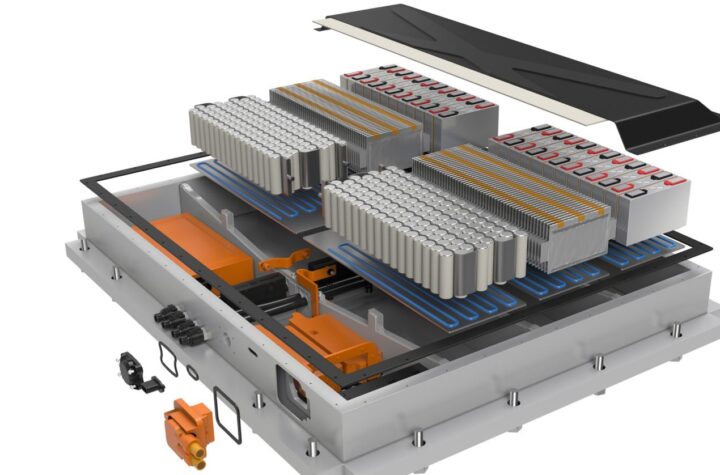
In 2007, Austrian technology company RF-iT Solutions GmbH won the German Innovation Award for its You-R[R] OPEN OPerating-Environment. The You-R[R] OPEN platform for system integration allows flexibility while ensuring complex communication capabilities. Numerous RFID readers as well as other Auto-ID devices, such as barcode readers, can be managed with ease. A remote reader/device management system operates through a network of central control points.
“This solution sets standards that ensure the kind of flexibility required so that optimization processes do, in fact, lead to the desired results more quickly, and so that small and medium-sized companies in particular are able to enter the RFID market with the required background. As long as the operating environment is employed, even if hardware changes take place in a running project, if for instance new readers are introduced, efficient integration and a high degree of protection of investment are nonetheless guaranteed,†Dominik Berger, managing director of RF-iT Solutions, stated.
Radio Frequency IDentification or RFID is a method of storing and remotely retrieving data using devices called RFID tags or transponders. An RFID tag is a small object, such as an adhesive sticker, that can be attached to or incorporated into an object. RFID tags contain antennas to enable them to receive and respond to radio-frequency queries from another RFID transceiver.
The aim of Graz, Austria-based RF-iT Solutions is to increase the economic feasibility of RFID in industries, including the automotive market, by offering RFID software and technology consulting. “RFID solutions need to be both technically feasible and economically attractive. Only then do companies have enough incentive to implement such solutions, and only then can rapid market penetration be expected. The more easily RFID components are able to be integrated with existing processes, the better the results,†Dominik Berger, general manager of RF-iT Solutions, stated.
In its quest to reduce deployment costs of RFID, the company joined up with Telekom Austria earlier this year. The latter will offer an all-inclusive managed RFID service, comprised of tags, interrogators and software, as well as installation and integration. The service is designed to lower the cost of deploying and using RFID and to make the technology more accessible to a wide range of companies. Instead of purchasing RFID hardware and software, then hiring a systems integrator to make it all work together, companies looking to use RFID can hire Telekom Austria to design, set up and operate an RFID application for them.
The customer pays a flat fee per transponder, avoiding the cost of having to purchase and integrate RFID hardware and software. At present, Telekom Austria is focusing on the fashion industry but eventually will offer the service to the automotive, pharmaceutical and healthcare industries.
Automotive Industries spoke to Dominik Berger, managing director and co-founder of RF-iT Solutions GmbH.
AI: Why is RFID becoming more and more a topic for the automotive industry?
Car manufacturing nowadays is about more than just a body with a futuristic design mounted on a high-tech chassis. Car manufacturing involves planning production on down to the finest detail to include each and every one of the many suppliers, who are scattered over several continents. At the same time, innovative solutions, such as RFID applications, have virtually become a trademark for the automotive industry.
AI: What are some of the challenges in selling RFID devices to the automotive industry?
The challenges are practically the same for every industry, that is, coordinating data collected from RFID tags so as to derive from it information able to be utilized within business processes. Only when RFID solutions are both technically feasible and economically attractive is there a genuine incentive for businesses to implement such solutions and thus drive rapid market penetration. RFID implementation is all the more successful the easier it is to integrate individual RFID components with existing processes. RFID is still not a plug-and-play technology, but we are well on the way to getting there.
AI: What experience has RF-iT Solutions had with OEM clients up to now?
Factory automation and container and handling unit management are very widespread areas of application within the automotive industry. The labelling of handling units (i.e. aids used in storing and transporting goods) using RFID results in enhanced transparency of inventory and of goods movement. In this way, all of the supply chain partners know the quantities and locations of handling units of any given type in circulation. Missing inventory, delays in delivery and, in extreme cases, even production stoppages can be avoided by the use of RFID technology. Experience gathered through completed projects, for a major gearbox manufacturer in Germany for instance, indicates that the required number of handling units in circulation can be reduced by at least 20% thanks to increased transparency. Purchasing fewer handling units results in cost reductions which alone suffice to ensure that the required RFID infrastructure investment will quickly pay for itself.
AI: What aspects of the You-R® OPEN integration platform and RFID middleware do automotive industry customers value in particular?
Implementing an Auto-ID environment results in greater process efficiency and enhanced quality while cutting costs – this has convinced our customers. As the platform is standardized and scaleable, expandability in response to increased business requirements, as was in fact the case with a leading gearbox manufacturer, is guaranteed. Only little effort is required for customizing the product to match individual customer requirements. This results in maintainable applications for automation systems, while these may be implemented at any level, from a scaleable pilot project to an enterprise-wide rollout. In addition, You-R® OPEN may be flexibly integrated with any IT environment whatsoever, which makes it the platform of choice for a variety of applications, projects and Auto-ID systems. You-R® OPEN is compatible with transponders, independent of the specific technology involved, i.e. with passive LF, HF and UHF transponders as well as active transponders and even bar code tags. This allows utilization within one company of a variety of frequencies and technologies for the various application areas.
AI: How prevalent do you think RFID solutions will be in future vehicles?
Compared with optical systems, RFID offers the industry two major advantages. Firstly, contact-free data transmission facilitates bulk reading and employment in challenging environments such as a painting line. Specialized transponders maintain functioning even at temperatures over 200 degrees Celsius or underneath a coat of paint. Secondly, while the storage media is rewritable many times over, it has a large memory capacity. This allows chips to be filled with large amounts of information which is available “just in time†at the location where it is required.
AI: What is the future, in your opinion, of RFID in the automotive industry?
Just as it is today unimaginable for a PC to run without an operating system, in the future RFID-driven processes will not be viable without an operating environment – this applies to the automotive industry as well. RFID implementation will lead even more quickly to results once it is possible, with the aid of suitable software modules such as You-R® OPEN, to integrate RFID processes with legacy business IT systems and with automation technology and to react flexibly to optimization requirements placed by companies.
RFID is a technology that has been successfully used in automobile production for over a decade. Now that Daimler AG, as one of the first car manufacturers worldwide, has joined EPCglobal, RFID is expected to make a decisive breakthrough in the automotive industry, resulting in greater standardization of processes throughout the value chain.












More Stories
DuPont materials science advances next generation of EV batteries at The Battery Show
Cybord warns of dangers of the stability illusion
Avery Dennison PSA tapes support rapid evolution of EV batteries